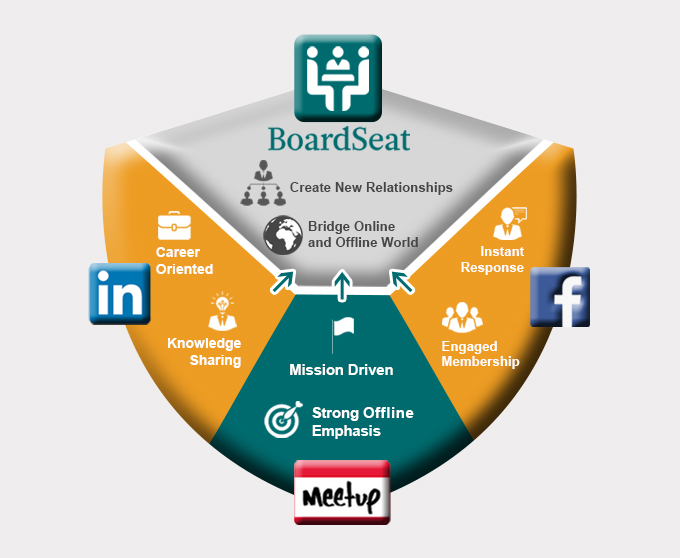We live in a world where everything is standardized. Most of our restaurants and stores are chains, giving us identical experiences wherever we go. We’ve come to expect it and, in some ways, crave it. Standardization makes us feel comfortable. Anything non-standard, like power sockets in other countries, makes us uncomfortable. When faced with two options, our answer is almost never to allow both. Instead, like VHS vs Betamax and Bluray vs HD-DVD, it becomes a fight to the death until only one option remains. We handle our social networks in much the same way.
For a while, we liked Myspace. Then a new contender appeared in the form of Facebook, and a battle commenced. Eventually, Facebook won. Then, a few years later, the same thing happened with the appearance of Google+. This time the new contender couldn’t hold its own and Facebook again reigned supreme. The moral being, just like everything else in our lives, we like standardization in our social networks. We like Facebook and LinkedIn because they’re standard, everyone is there and it’s generic enough for all of us.
However, we are all individuals and have different needs. The problem with “one size fits all” is that it doesn’t fit everybody perfectly. That’s why there are specialized social networks, designed for specific needs:
- Ozone: Facebook for Korea
- Renren: Facebook for China
- Sermo: A social network for medical practitioners
- aSmallWorld: A social network specifically for affluent people
The reason these alternatives exist is that there’s a special need, cultures, industries, or regulations that make an alternative either desirable or necessary. They, like their larger and more generic cousins, serve the purpose of bringing people together. However, unlike their more generic cousins, the people they’re bringing together are less disparate. They’re coming together, on this alternative social media, because they already have something in common. This common connection, as well as the smaller size of the social media, often leads to smaller numbers of connections with relationships that run deeper. They can build relationships with fewer people that go deeper, becoming more relevant to their lives, rather than casting a net so wide that they cannot possibly maintain a relationship with all those connections.
BoardSeat wants to be sort of the best of both worlds for business networking. With options for everyone and a standardized experience, regardless of your industry and needs, but focusing in on smaller groups of twenty-five people who have the same goals, needs, and/or experiences. These groups give individuals access to useful people, sources of help and advice for career growth in specific areas. BoardSeat gives individuals access to these groups, focused on various needs, goals, and interests, with a standardized experience regardless of whether the group is about Chinese Market Integration or TCP/IP Networking. Standard, but specific. Designed to give exactly what is needed in a way that’s comfortable to use.

